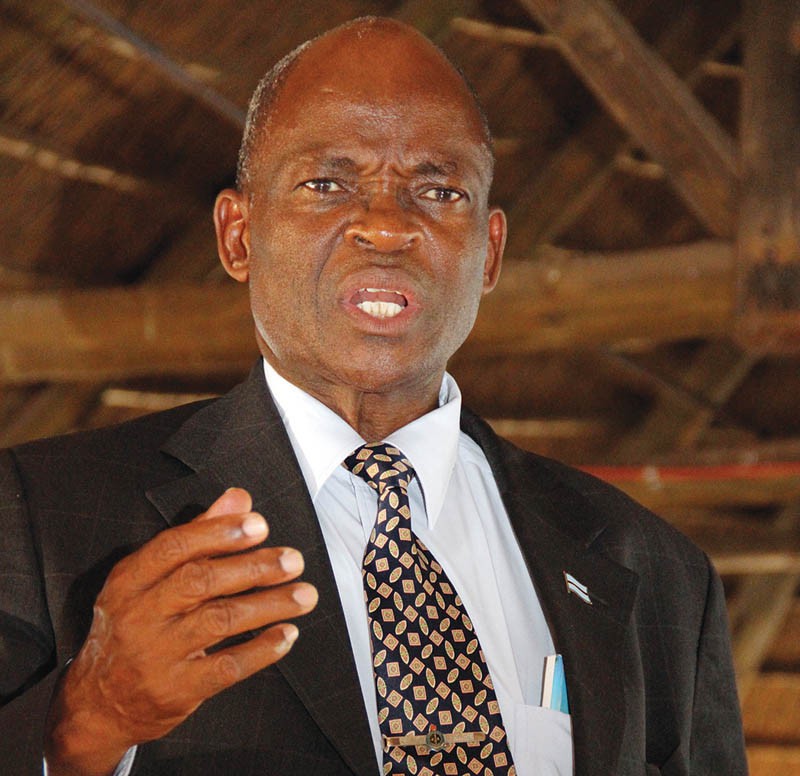Batshu outraged as Mmadinare villagers ask to hire foreigners
Onalenna Kelebeile | Wednesday April 22, 2015 14:11


Some residents pleaded with Batshu during a Kgotla meeting in Mmadinare on Monday that they be allowed to employ foreign nationals because they are very effective while Batswana do not want to work for locals.
“Please allow us to hire foreigners temporarily so that they help us in the farms because locals are failing,” said one resident. The employment of immigrants without work permits is an offence punishable by the law but temporary permits can be issued for foreigners to work in the country.
Government, however, has reserved farm jobs for locals and does not issue permits to foreigners in that sector.
Batshu said there was no question of relaxing the rules for Mmadinare villagers.
“What will happen if the Zimbabwe economy improves at the time when Batswana are relying on their cheap labour in their farms,” he said. He added, “Batswana are very choosy and this has seriously delayed their progress in life. Farm owners must also pay farm workers well so that they can attract Batswana to work in their farms. The employer and employee need each other.”
Some residents told Batshu that Batswana want cheap Zimbabwean labour because they could not cheat locals. Batshu also briefed residents on the new Societies Bill, which was adopted in Parliament recently.
Among its provisions, the new Bill requires 150 members for the registration of a church. The Bill is awaiting President Ian Khama’s signature to be passed into law.
“Existing churches that fail to comply with the set procedures like submitting annual returns will be cancelled and if they decide to operate again in the future they will be subjected to the requirements of the new Act,” he said. He said an advisory and arbitration council would be appointed to address conflicts concerning churches that are usually brought before his ministry. The council will also assess applications for registration of new churches. “It is a fact that there are serious fights and divisions among churches,” said Batshu.
“Currently there are about 10 cases registered with my ministry, with some dating as far back as 1995.” Government has attributed the proliferation of religious organisations through the years to the influx of dubious foreign pastors and frequent fractions within congregations.
Batshu said once the new law is operational the ministry will also put in place regulations on how the churches operate, which would include issues of environmental awareness.
The community also raised concerns over the mushrooming of churches in the village.
They said the number required to open a church is nothing to the new Pentecostal churches because they attract school going children with musical instruments.
“Government’s process of allocating land for churches is extremely slow while the new churches can operate in residential and even business plots without any hindrance. Some of these churches are not even legally registered,” said one resident.
One resident said churches are an integral part of the government and are important stakeholders in shaping the society but said it becomes a problem when churches stop people from taking medications prescribed by doctors.
